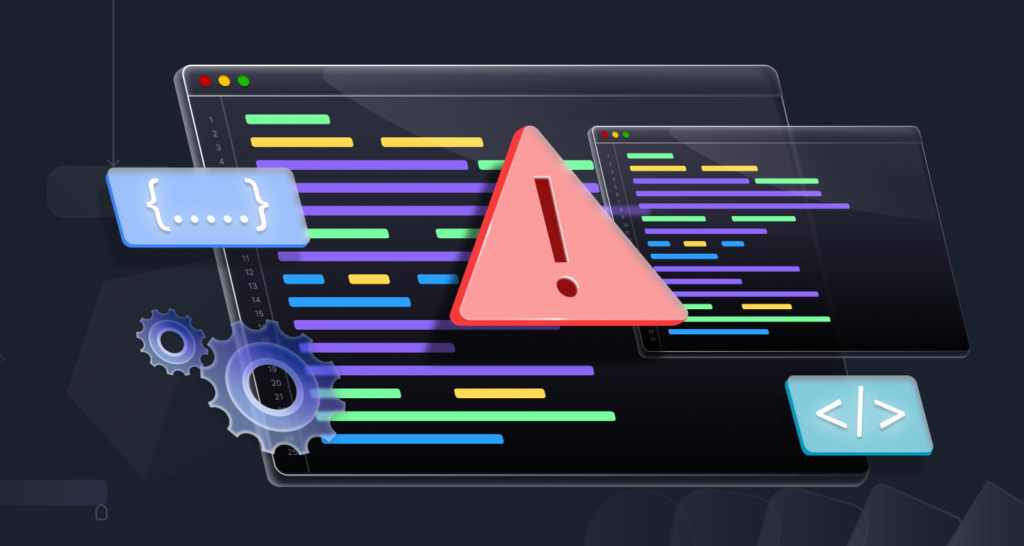How does a programmer deal with errors in programming?

Whether you’re a novice or an experienced developer, encountering errors is a common occurrence. However, the way you handle these errors can make a significant difference in the efficiency and success of your projects.
Understanding Errors
Before delving into how programmers deal with errors, it’s crucial to understand the nature of errors in programming. Errors can manifest in various forms, including syntax errors, runtime errors, and logic errors. Syntax errors occur when the code violates the rules of the programming language, while runtime errors occur during the execution of the program. Logic errors, on the other hand, result from flawed reasoning within the code.
The debugging process is the systematic approach to identifying and resolving errors in code. It involves analyzing the code, pinpointing the source of the problem, and implementing a solution.
Preventing Errors
While errors are inevitable, programmers can take proactive measures to minimize their occurrence. Writing clean, well-structured code is paramount in preventing errors. This involves adhering to coding standards, using meaningful variable names, and organizing code logically.
Additionally, leveraging tools such as linters and static code analyzers can help catch errors before they manifest during runtime. These tools provide valuable feedback on code quality and potential issues, allowing programmers to address them early in the development process.
Detecting Errors
Despite preventive measures, errors may still slip through the cracks. In such cases, programmers must employ effective techniques for detecting bugs. This may involve using print statements, logging, or stepping through code with a debugger.
Debugging tools, such as integrated development environments (IDEs) and debugging libraries, can streamline the error detection process by providing insights into the program’s execution flow and variable values.
Handling Errors By Programmers
Once errors are detected, programmers must devise strategies for handling them effectively. This may involve implementing error-handling mechanisms, such as try-catch blocks or error messages, to gracefully handle unexpected situations.
Error logging and monitoring are essential components of error handling, allowing developers to track errors in real time and gather insights for improving code reliability.
Learning from Errors
Errors present valuable learning opportunities for programmers. Instead of viewing mistakes as setbacks, programmers should embrace them as chances for growth and improvement. Analyzing errors can provide valuable insights into areas for skill development and lead to more robust coding practices.
Dealing with Specific Types of Errors
Different types of errors require specific approaches for resolution. Syntax errors are relatively straightforward to fix, as they typically involve correcting typos or syntax violations. Runtime errors may require more in-depth debugging to identify the root cause, while logic errors may necessitate thorough code review and testing.
Collaborative Error Resolution
Programming is often a collaborative endeavor, and seeking assistance from peers can be invaluable when dealing with errors. Peer code reviews provide an opportunity for constructive feedback and can help catch errors that may have been overlooked. Online communities and forums also serve as valuable resources for troubleshooting difficult issues and seeking guidance from experienced developers.
Stress Management
Dealing with errors in programming can be frustrating and stressful, especially when deadlines are looming. It’s essential for programmers to develop healthy coping mechanisms for managing stress and maintaining perspective. Taking breaks, practicing mindfulness, and engaging in physical activity can help alleviate stress and prevent burnout.
Real-World Examples
To illustrate the principles discussed, let’s consider some real-world examples of error resolution in programming projects. These case studies demonstrate how programmers identify, troubleshoot, and resolve errors in practice, providing valuable insights for aspiring developers.
Conclusion
In conclusion, errors are an inherent aspect of programming, but they need not be daunting obstacles. By understanding, preventing, detecting, and handling errors effectively, programmers can navigate the development process with confidence and resilience. Embracing errors as learning opportunities and leveraging collaborative resources can empower programmers to grow and excel in their craft.
Unique FAQs
1. How do I know if my code has errors?
- You can use debugging tools, such as IDEs or print statements, to identify errors in your code. Additionally, running automated tests can help catch potential issues early on.
2. What should I do if I encounter a syntax error?
- Syntax errors are typically straightforward to fix. Review the error message provided by your development environment, locate the line causing the error, and correct any syntax violations.
3. Is it normal to feel frustrated when dealing with errors in programming?
- Absolutely! Programming can be challenging, and encountering errors is a natural part of the learning process. It’s essential to acknowledge your frustration and practice self-care to maintain a positive mindset.
4. How can I improve my debugging skills?
- Practice makes perfect when it comes to debugging. Experiment with different debugging techniques, seek feedback from peers, and learn from your mistakes to refine your skills over time.
5. Are there any tools or resources available to help with error resolution?
- Yes, there are many tools and resources available to assist with error resolution, including debugging libraries, online forums, and programming communities. Experiment with different resources to find what works best for you.




Leave a Comment